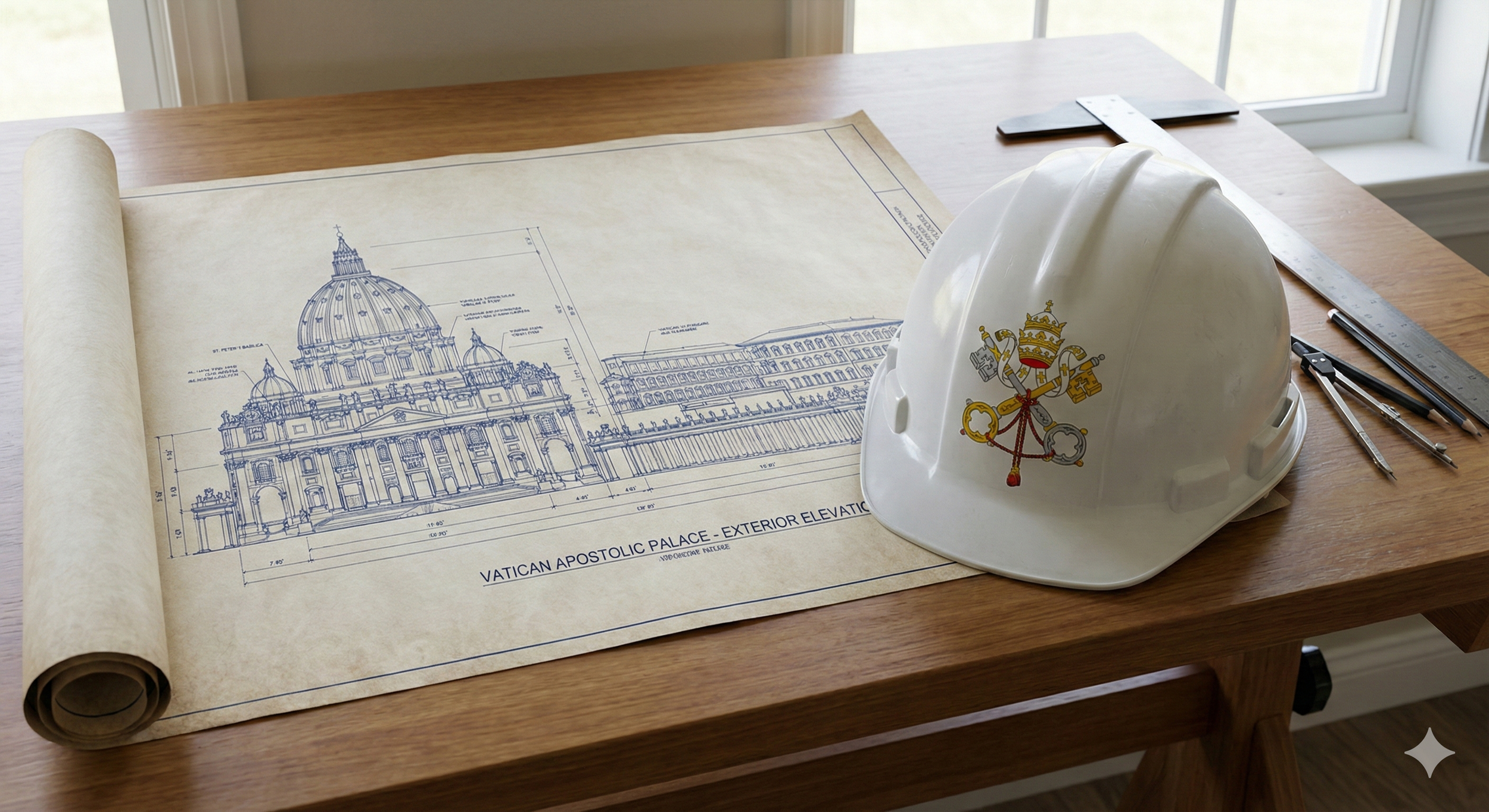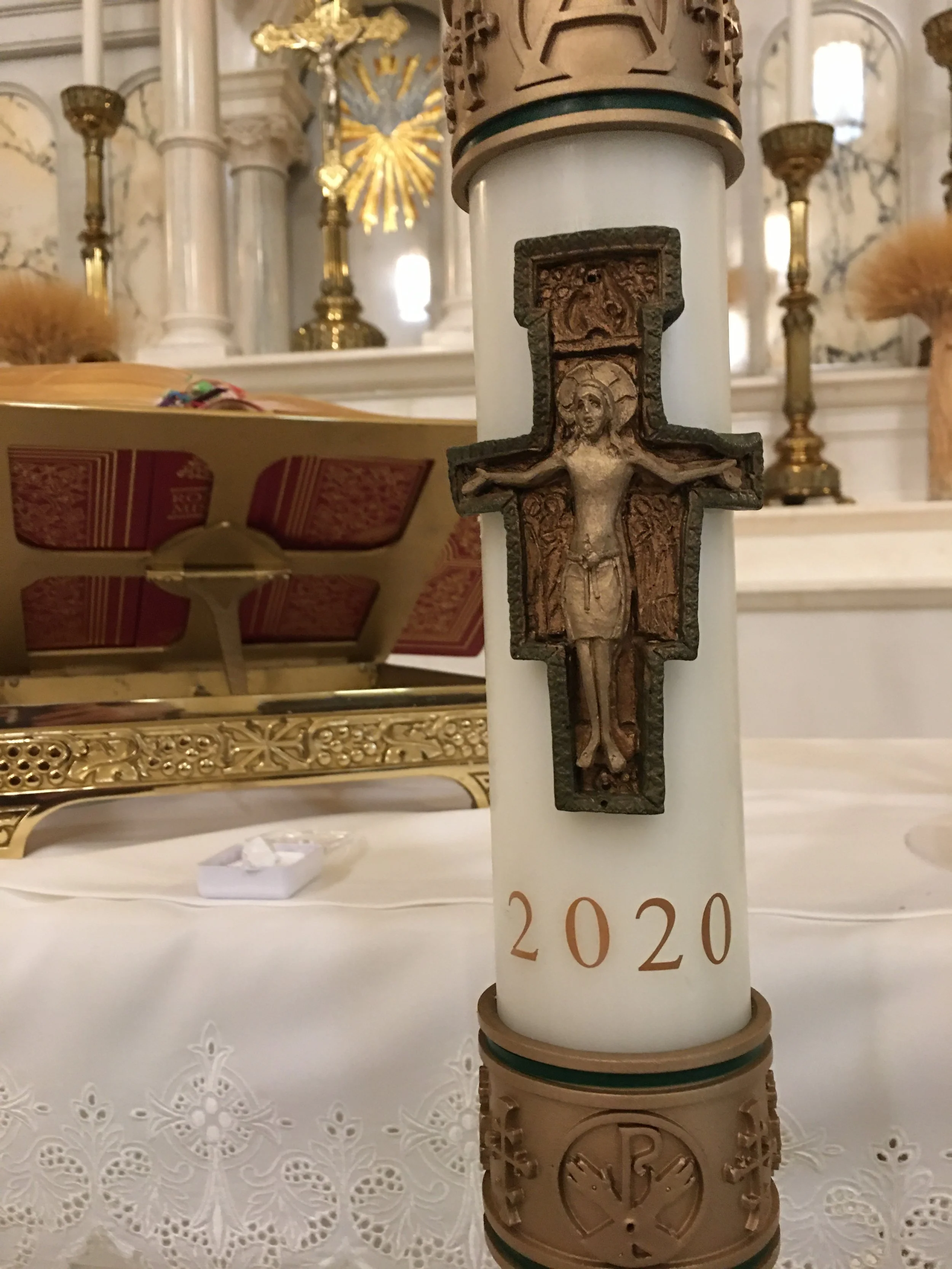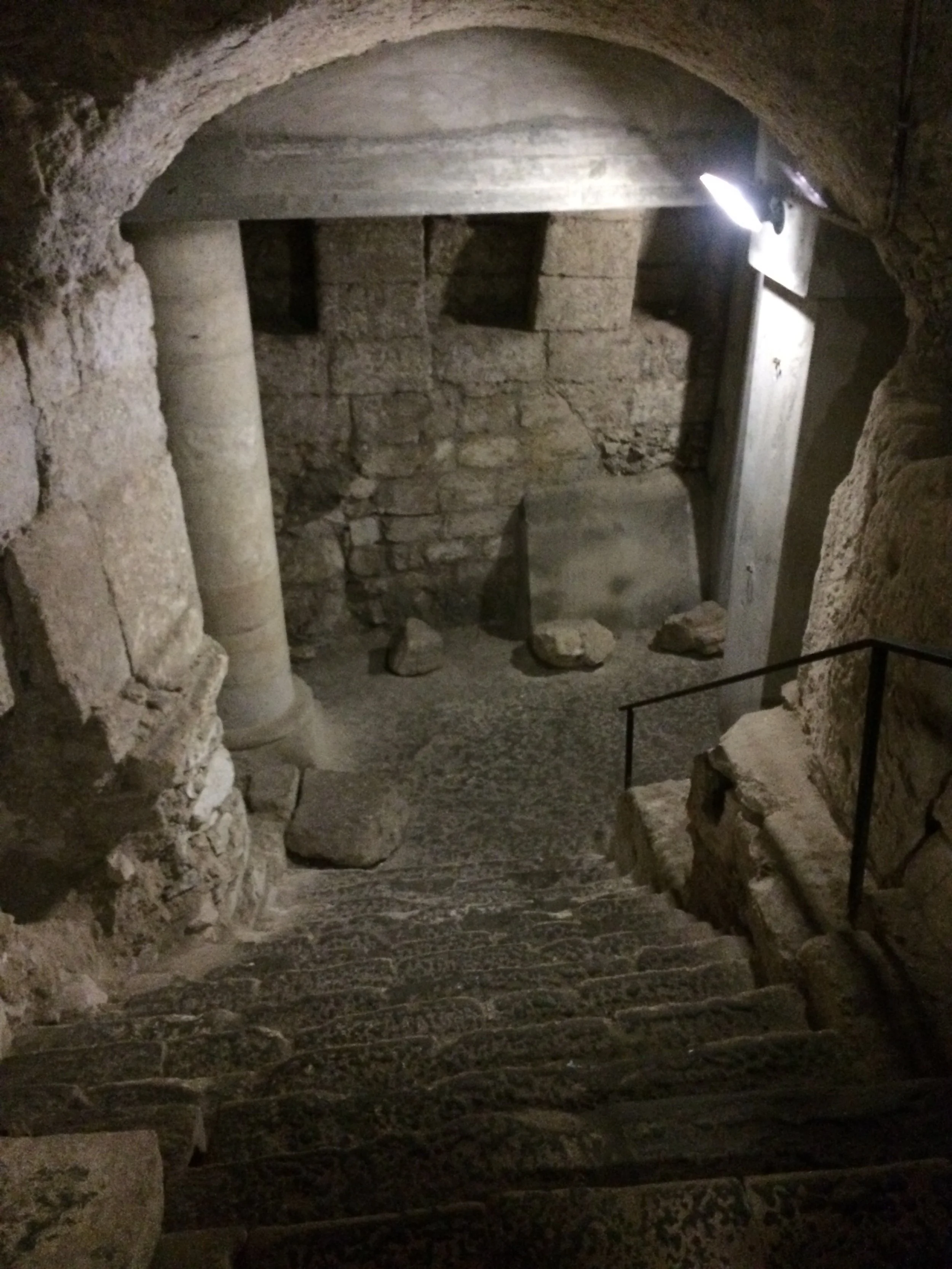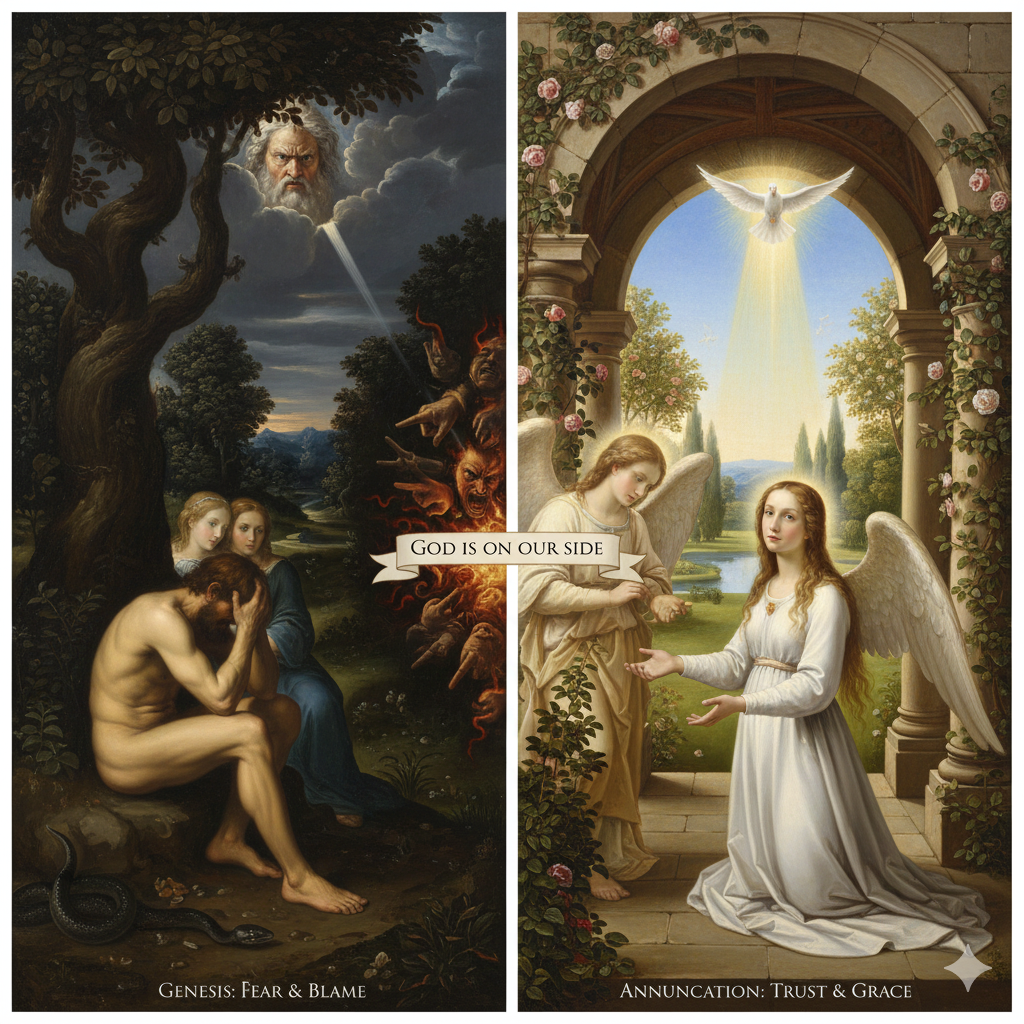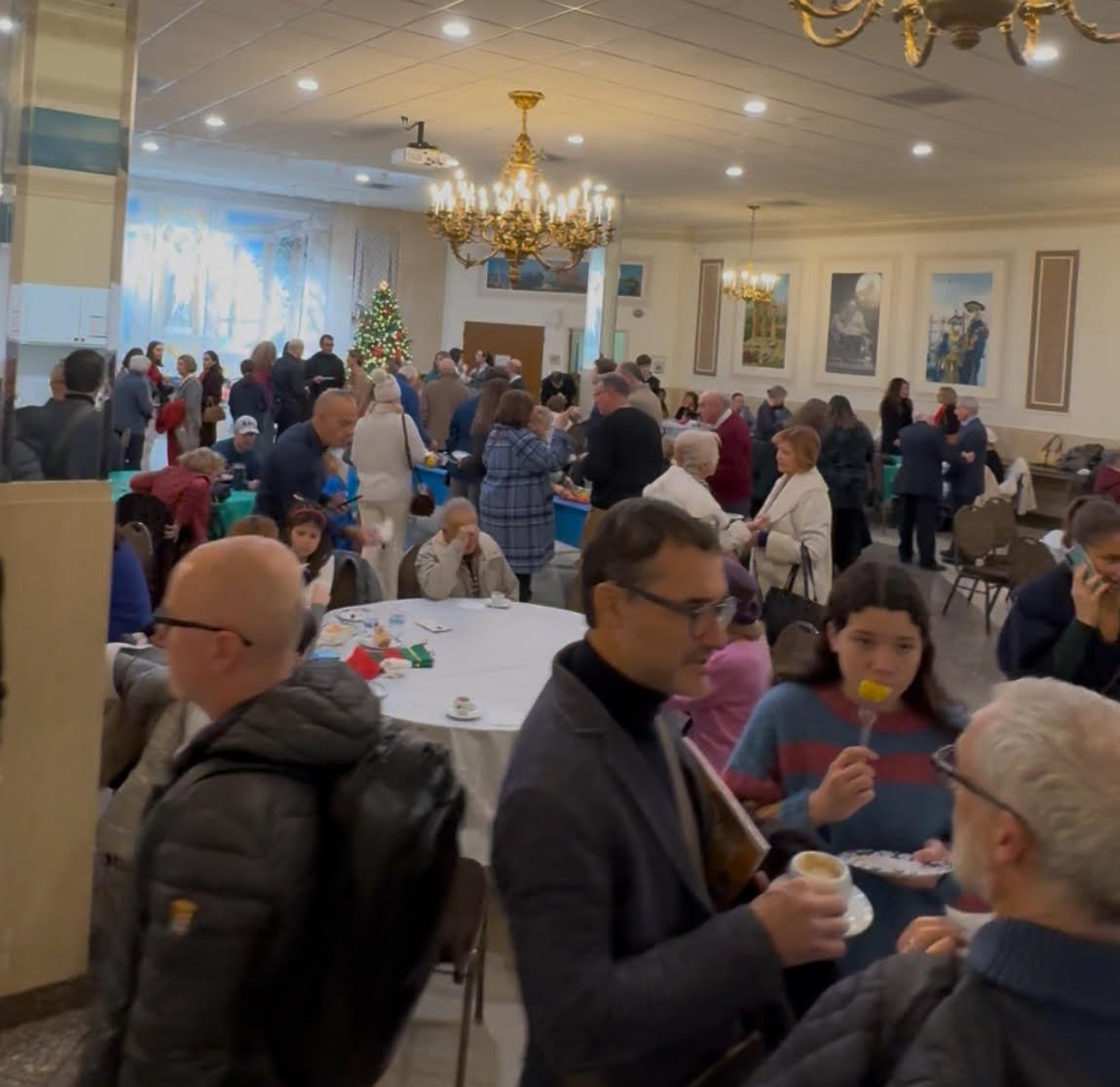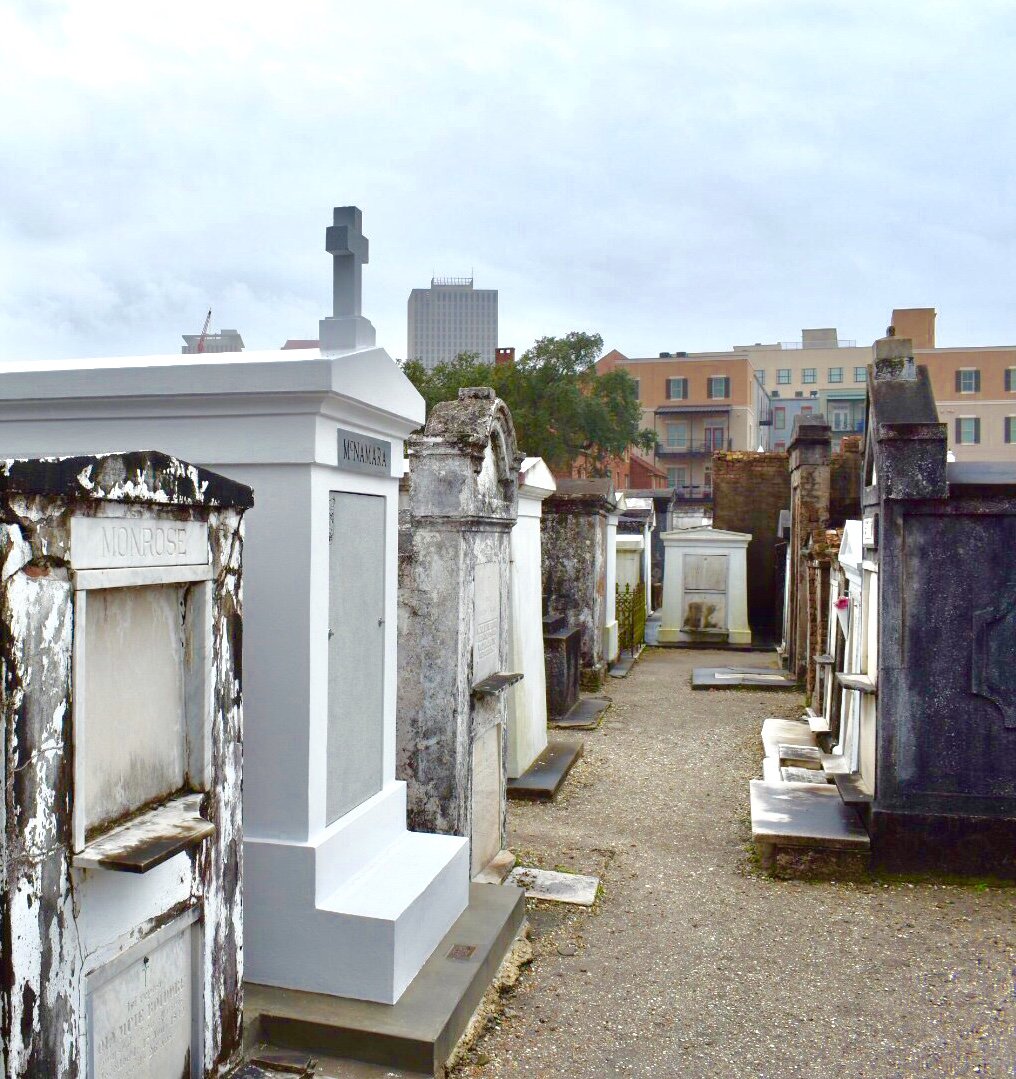How Pope Leo is Softly Signaling His Upcoming Moves
…the Church is making a real statement that governance is no longer tied to ordination. When I was an intern 15 years ago at the Vatican embassy in Switzerland, I remember many competent laypeople working there. But they were not considered diplomats. “To be a true diplomat you must be ordained.”
But why? If you have been commissioned to speak on behalf of the Holy Father or your archbishop, why should I trust you less? Why does the change that happens during ordination also signal your ability to manage conflict greater than a classically trained diplomat?
Beyond the Medal - Homily at the Olympics
His Law can only be a path meant to help us live each day with joy. By following it, we discover true happiness. A homily delivered by Fr. Diego Puricelli in Milan.
This homily for Sunday, February 15th, was delivered by Fr. Diego Puricelli in Milan, Italy during the occasion of the Olympics. It is re-printed with author permission. The author is not affiliated with Theology for the Unwanted.
“Blessed are they who follow the law of the Lord!”: We have just repeated these words with the psalmist. And, they are not simply beautiful poetry. They reveal a beatitude — a promise from God himself — that true and lasting happiness is found in walking in His ways.If we are here this evening, it is because we have tasted the joy of being with the Lord; because, at least once in our lives, we have savored a drop of His love — and that was enough to awaken within us a longing for Heaven.
“You would not be seeking Me if I had not already found You”, saint Augustine once wrote, expressing the paradox at the heart of every search for God: we are able to seek Him only because He first allowed Himself to be found.
And so, His Law can only be a path meant to help us live each day with joy. By following it, we discover true happiness.
And yet, something does not quite add up.
I do not know about you, but as I listened to this evening’s long Gospel, I found myself feeling somewhat unsettled. Jesus’ words seem to place before us an ideal that is lofty and beautiful, yet difficult to attain. And so it often happens that the Law of the Lord — which should be a source of joy — ends up feeling like a burden.
How many times, in fact, do His commandments, instead of “giving light to our eyes”, as the Psalm says, leave us weighed down by guilt? Measuring ourselves against them, we feel lacking, inadequate, never quite enough. This is a common experience, especially for those who live a form of Christianity in which rules, norms, and precepts gradually take over and dominate everything.
And so it happens that faith, from being a liberating experience, gradually turns into its opposite: a constant reminder of our fragility, an inner tribunal that leaves little room for mercy. We end up living as though life were a never-ending examination to be passed — exhausting and distressing, because it offers no rest.
In these days, as I have been following the Olympic competitions and watching both the victories and the inevitable falls of so many athletes, I have found myself wondering: is this not the same logic we often apply to our life of faith? A logic built on performance, results, and inner rankings — where we end up feeling “good” only when we win and “wrong” when we fall.
“Nothing hurts more than trying your best and still not feeling enough”. This repost on TikTok by Ilia Malinin — known as “the Quad God” — shared shortly before the performance in which he lost the gold medal, struck me deeply. It goes straight to the heart of one of the most profound dimensions of our human experience: the need to feel recognized, welcomed, and loved — not for what we manage to achieve, but for who we are.
Yes, someone might object: But this is the Olympics! Here, you have to prove your worth. Here, results, scores, and medals matter. And that is true: in a sporting competition, performance is decisive. But the real question is another: is this also true of our lives? Is it true before God? And if we think about it carefully, even in sport — when it is authentic — things do not really work this way. Behind every medal there are sacrifices, countless quiet hours of training, falls, defeats, and fresh starts. An athlete does not stop being valuable when he or she loses. No one loses their dignity because of a fall.
And this, in fact, is what fascinates us about sport: it tells, with disarming simplicity, the nobility of effort and, at the same time, the truth of our humanity — a humanity that is fragile, limited, exposed to failure, and yet capable of extraordinary courage and astonishing new beginnings.
The Gospel we have just heard, then, does not seek to pin us down to our miseries or our shortcomings. No. It calls us to give the best of ourselves, to dwell in the heights of love, to captivate the world with a way of living that carries the fragrance of Heaven.
As the Czech theologian Tomáš Halík reminds us: “The most authentic expression of our faith — or of our unbelief — is our humanity. Not what we say or think about God, but how we live our lives. And not only our moral life, our virtues and our sins, but also our imagination, our creativity, our compassion, our capacity for wonder and for laughter.
Fixing Canon Law’s Parish Boundary Problem
During a family trip to Rome, my dad looked out at one of the major avenues nearby the Vatican and commented: the roads don’t have lanes. There were busses, vespas, fiats, and somehow no accidents. Immediately I pointed out to him, and the people that drive on these roads are the same ones that write our Canon Law.
John the Baptist shows us how to move from “not-knowing” to recognizing
If you’ve ever looked at a legal document and felt it was missing the "truth" of the matter, you’ll understand the tension John the Baptist felt at the Jordan River. My latest blog post dives into the moment John claimed he "did not know" his own cousin, and why that confession is the key to our own sacramental lives.
Hamilton and Fruitful Tensions: Why JPII’s Big Theological Innovations in 1979 Keep Us Going
(Not a post about power/roles in the Church) The play Hamilton famously challenged our ideas about “casting”…could it also be the key to unlocking the future of Catholic theology? Let’s look at the major innovations in Church teaching from Saint John Paul II in 1979 and how he got us unstuck from a big problem: a theology that had for centuries formally stated women are "a biological defect.”
Homily: When we Reduce God to a Guarantee of Our Own Protections
Fr. Diego Puricelli reflects on why the Church puts St. Stephen’s feast so close to Christmas on the calendar. The martyrdom mirrors the life of Christ, taking shape within a religious context where guardians of the law and experts in scripture feel threatened by his word.
Fr. Diego Puricelli is a moral theologian and priest of the Diocese of Belluno-Feltre. This homily by our guest author is reprinted freely with permission.
Celebrating the feast of Saint Stephen on the day immediately following Christmas may appear, at first glance, to be an unfortunate choice. The account of the violent death of the first martyr in history, in fact, ruins the enchanted atmosphere of Christmas.
Yet this feast has its roots in a very ancient tradition: as early as the 4th century it was celebrated on December 26, particularly in Jerusalem and Rome. It is not, therefore, a random choice, but an original and intentional placement, dense with theological meaning.
In a few days, then, we will celebrate another memorial, that of the Holy Innocents, namely the children killed by Herod. Here too, once again, the tragic presence of bloodshed, in the aftermath of the most beautiful of announcements. In short, it seems almost as if the liturgy intentionally wants to crack the enchantment of Christmas. But why?
One of the keys to interpretation can be provided directly by the text of Luke, specifically the sixth chapter of the Acts of the Apostles. Here Stephen appears from the very start as a man "full of grace and power," whose life is totally crossed by the force of the Spirit. His word, however, is not neutral or accommodating: it is a word that unsettles, that unmasks: in short, that causes a crisis.
And it is precisely this that the text lets us see clearly: the light that comes from God, when taken seriously, is not only a source of consolation, but also of resistance. This, after all, is an intuitive fact. Light, while on one hand it brightens and warms, on the other can be annoying to those who are not used to the light, to those who live in darkness.
If Christmas, therefore, announces the breaking of this light into history, Stephen is one of its first and concrete consequences. His martyrdom, in fact, does not contradict Christmas joy, but simply reveals its price. Now, there is an aspect on which we perhaps do not dwell enough: the very source from which the persecution is born.
Stephen’s persecution, in fact, does not originate in distant environments or those openly hostile to God, but takes shape within a religious context. They are men expert in the Scriptures, guardians of the Law, who feel threatened by his word.
And this is precisely the most uncomfortable point of the story: resistance to the light does not always come from the outside, but can be born and often is born right where one considers themselves to be on God's side.
On this point, the insights of American sociologist Mark Juergensmeyer in his book "Terror in the Mind of God" appear illuminating: in this small masterpiece, the scholar shows how religious violence—a phenomenon transversal to all religions, Christianity included—is not born primarily from an absence of faith, but from an absolutized faith, that is, one incapable of tolerating the challenging of its own certainties.
When God is reduced to a guarantee of one's own identity, to a guardian of the borders and symbolic power of a group, then every "other" word—even when it is most faithful to the Gospel—becomes a threat to be neutralized.
Violence, in these cases, does not serve to defend God—as if God needed to be defended—but to defend a system that has put itself in His place. And this, you know, concerns us much more closely than we are willing to admit. We are often quick to point the finger, to comment, to judge, to talk behind the backs of those next to us.
Much less prompt, however, to recognize the rigidities that inhabit our hearts, the discords between the Gospel we proclaim with words and the one we concretely live, the reassuring comforts that we end up mistaking—and sometimes justifying—as evangelical radicalism.
We stink, and we don't realize it. And whoever reminds us of it, whoever dares to tell us frankly, often disturbs us more than the evil they denounce. After all, all of this should not surprise us: we live in a cultural climate of constant moral impunity, in which no one truly assumes their own responsibility: the blame is always outside of us, never inside.
In this light, one also understands the fate of Stephen. He is not killed because he denies God, but because he announces Him in such a way as to dismantle a closed, self-sufficient religious order, fundamentally impermeable and resistant to any change.
In this, Stephen is truly a crystal-clear image of Christ
And indeed, his death will be an almost perfect overlap with that of the Master: "Lord Jesus, receive my spirit." "In manus tuas, into your hands, Father, I commend my spirit." That is why the blood shed by Stephen is found next to the cradle of the child of Bethlehem: because the God who is born out of love is the same one who, if taken seriously, can cost one's life.
Homily for Solemnity of the Immaculate Conception
The author invites you to dive into today’s readings—the dialogue with Adam and Eve after the Fall (Genesis 3:9-15, 20) and the Annunciation to Mary (Luke 1:26-38)—to understand a crucial spiritual journey: how we move from perceiving God as an accuser to recognizing Him as the one who is fundamentally with us.
The following is reprinted with author permission. Fr. Diego Puricelli is a professor of moral theology and a priest of the Diocese of Belluno-Feltre.
"Where are you?" It is a question as old as humanity. A discreet question, almost whispered, and yet capable of opening up abysses. A question that resurfaces when we finally slow down, when the noise that dwells within us fades, and by grace, we truly become capable of listening to ourselves.
"I heard your voice in the garden: I was afraid, because I am naked, and I hid myself." We often cannot even formulate a similar answer. We do not possess the lucidity of Adam, whose sentence is truly a distillate of self-knowledge. What had happened? Adam discovered he had been deceived. He experienced his own fragility, his own vulnerability: he felt naked. And the fear of being wounded again pushed him to hide, to shut himself off, to distance himself even from his dearest affections, the first of which is his own God.
How similar we are to him! How many times do we also hide, not because we truly want to disappear, but because we are afraid of being seen for who we are: incomplete, contradictory, exposed. We hide behind efficiency, behind the quick wit, behind the roles we hold; we even hide behind spirituality, when we transform it into an alibi for not facing our deepest fears.
"Where are you?". Not: "Why did you make a mistake?", not: "Why aren't you better?". Simply: "Where are you?". Where do you find yourself in your life today? A question that does not condemn, but invites us to step out of the shadows.
This, however, is not the only one. Another question reaches our progenitor: "Who told you that you were naked?". It is an interrogation that inevitably resonates within us too. "Who deceived you? Who made you feel wrong? Who broke your heart?"
At first glance, it seems like a cruel question, one that puts a finger on the wound. And yet, paradoxically, it is an offer of salvation. Moreover, I would say: it is the only question that truly makes sense to try and answer.
This time, however, Adam cannot delve deep. And, in fact, he behaves as we often behave: he passes the buck. He blames Eve, who in turn blames the serpent. No one takes the part that belongs to them: no one has the courage to say: "It was me."
After all, this is a mechanism as ancient as it is current: when the truth burns, we always look for an easier target than ourselves. Thus, pretending that words and gestures do not leave wounds, we end up judging, accusing ourselves, and hurting each other.
In the chain of passing the buck, however, the last reference point is missing. The blame slides from Adam to Eve, and from Eve to the serpent. But is the serpent really the last link in the chain? The biblical text here is extremely subtle. Yes, because who created the serpent and placed it in the garden? God. Exactly. The fault is His. Or at least in the distorted logic of our wounded heart, we end up thinking it is His.
Here is the paradox: the one who had nothing to do with it, the one who is actually the only one who truly loves us, ultimately becomes the "monster" of the situation.
Mary is exempt from these "human, all too human" logics, in the derogatory sense of the term. In her, there is no shadow of that instinctive reflex that leads us to suspect, to defend ourselves, and to accuse. She is Immaculate precisely because she possesses an original, clear, total trust in God: she does not doubt His benevolence, she does not interpret His word as a threat, she does not experience His presence as judgment.
Mary often does not understand, she is gripped by doubt, like each of us, but she trusts. Radically. Even arriving at hoping against all hope.
How much we need her example and her intercession in our lives! Looking to her, in fact, we learn to return to the essential: "God is on our side, not against us." He is the only one who does not betray us, the only one who does not tire of starting over, the only one who continues to believe in us even when we no longer believe in ourselves. And this—precisely this—is what matters, what can truly heal our hearts.
The prophet (a homeless woman) in my parish basement.
Follow the smell of coffee and grilled cheese to my parish basement. You’ll hear sounds of football on tv and the voices of the homeless and volunteers catching up. That’s your typical experience every Sunday afternoon for our little chapter of Sant’Egidio, a Catholic community dedicated to experiencing the Gospel through friendship with the poor and discarded.
A Moral Catholic Life: Is it possible without grief?
This reflection is heavily influenced by Fr. James Keenan, SJ, and the first three of the D’Arcy Lectures on “Preparing for the Moral Life” delivered in 2022.
You can find the lecture series at https://www.youtube.com/watch?v=k0ZY-4uGa4E
From thinking like a Catholic lawyer to a Catholic theologian
For those of us who grew up attending Catholic school, our journey with the faith began by learning simple prayers and rules. For any second grader, it’s an accomplishment to know the commandments, the precepts of the Church, and to be able to recite prayers every night before going to bed. That is an important foundation.
But to start thinking like a theologian, you have to also learn to contemplate the mystery of God. To meditate on his vast creativity, and how he made each and every one of us in his image and likeness. If we’re thinking like a chef, we are like fresh produce carefully cultivated and picked in order to make a five star meal. God does not make mistakes.
Back to Tradition: The Theology of Fewer Pews
Yes, the Latin Mass is beautiful. But can it be replicated in the modern day and still capture all of the essential Eucharistic theology it once had?
Mercy as both the inferior and superior place. But always learning.
It’s incredible how such a core concept of Catholic theology can still be a serious subject of division. How can one know Jesus Christ without first knowing what mercy means? Maybe we think we do mean it. But do we make it too personal, too much about the self and a place of righteousness? Cardinal Walter Kasper noted in his 2014 book Mercy that this topic is almost criminally neglected in theological textbooks. It leaves our seminaries and our parishes with a void, one that is frequently filled by opposing and painful interpretations of what it means to GIVE mercy.
Moral theologian: When the Risen One manifests himself, he does so without any spirit of revenge
FREE Post available to non members
Now, the very experience of the first witnesses reminds us that the joy of the resurrection is not accessed in a straightforward, linear way. In fact, from the accounts of the appearances, we can glimpse a kind of common thread that links all these narratives: the rejection of spectacle. The Risen Lord, in fact, does not choose to manifest himself to everyone in a clamorous and convincing way. His presence is not imposed. On the contrary, he reveals himself with extreme discretion, almost with modesty, and only to a few. He lets himself be recognized through simple, almost negligible signs: the bandages left in the tomb, the heart that burns along the way, the net full of fish, the testimony of the women. In short, the presence of the Risen One is extremely discreet.
The following is reprinted with author permission. Fr. Diego Puricelli is a professor of moral theology and a priest of the Diocese of Belluno-Feltre.
“Now, the very experience of the first witnesses reminds us that the joy of the resurrection is not accessed in a straightforward, linear way. In fact, from the accounts of the appearances, we can glimpse a kind of common thread that links all these narratives: the rejection of spectacle. The Risen Lord, in fact, does not choose to manifest himself to everyone in a clamorous and convincing way. His presence is not imposed. On the contrary, he reveals himself with extreme discretion, almost with modesty, and only to a few. He lets himself be recognized through simple, almost negligible signs: the bandages left in the tomb, the heart that burns along the way, the net full of fish, the testimony of the women. In short, the presence of the Risen One is extremely discreet.
What's more, when the Risen One manifests himself, he does so without any spirit of revenge, but rather offers—as in John's account—the signs of a freely lived love: "the hands and the side." No reproach, no preaching, no petty remarks. The gestures of the Risen One are so essential that they cannot be misunderstood: “Peace be with you! Receive the Holy Spirit.”
Thus, the resurrection manifests itself in the community of believers: as a relief from one's own sin and a liberation from one's own fears. The Risen One, in fact, knows well the poverty of his church, but he also knows that in this weak and fragile humanity lies the mysterious strength of authentic witness. After all, it is true: only those who have known their own limits, only those who have experienced their own sin, can become authentic guardians of God's forgiveness, without falling into idealism and without fleeing the truth of life (how many times, instead, do we think the opposite, that God wants us to be perfect... and we don't accept our failings, we don't forgive ourselves...).
From this first expansion of life and joy, Thomas, the disciple who best of all embodies our struggle to immediately commit to a renewal of life, is initially excluded.
How many times do we, like Thomas, not believe the announcements of hope and new life that the Lord gives us, ending up remaining isolated, on our own, licking our wounds. It's true. As the then-Cardinal Bergoglio wrote back in 2005, in a wonderful little book titled "Healing from Corruption," "a painful journey always demoralizes, having experienced defeats leads the human heart to get used to them, so as not to be surprised or suffer again if others come."
Yet, in Thomas, there is something that betrays his desire to access a new relationship with his Lord. In fact, eight days later, Thomas is still there, with the group of disciples. He hasn't gone away, disappointed and upset. Thomas had the courage to disobey the protests of his wounded heart, choosing to bring his own pain closer to the hope of his brothers.
Only then does the Lord finally appear to him, to introduce him as well into the mystery of his pierced and risen love: "Put your finger here and see my hands; stretch out your hand and put it into my side; and do not be unbelieving, but believing!” Indeed, one never enters the joy of the resurrection alone, set apart, but always and only together with others, together with our brothers and sisters in faith.
Today, we too are called to live our journey of faith like Thomas. I think there is no more beautiful icon! Men and women of doubt, uncertain, wounded, but at the same time capable of confident surrender, of remaining despite everything, even when things around us often say the opposite.
In this journey, we are not alone: the Risen One walks beside us, draws near precisely where our hands tremble and our hearts close. It is He who, with the gentle strength of his wounds, gathers our questions, sustains our weariness, and transfigures our pain.
And so, truly blessed are we if we have the courage to remain: because he who remains, even in the darkness, will see the light; and he who trusts, even without seeing, will enter into endless joy!”
End post! This post has been freely shared with written permission of the author.
Getting Unstuck: Advancing Aquinas, Conflict Analysis, and Complex Moral Theology
In my past life, working in foreign affairs and politics, I learned a simple but profound rule: people are rarely fighting about what they tell you they are fighting about. This is excellent advice for any aspiring diplomat but also for spiritual advisors.
We tend to tell other people what we want them to hear. And in defending ourselves against accusations of doing something unjust we especially cling to appealing reasons that conveniently help us cover up our own shortcomings.
The Church will have an ever-growing number of individuals who have broken Church law (like a couple using IVF to conceive) or who have made the difficult life decisions to get remarried after a divorce. And for those who have found positivity and stability in their choices, we are increasingly having difficulty explaining why the Church cannot walk the journey with them.
When People Say “Take Up Your Cross” - Helping Catholics Reclaim the Truth of its Meaning
I’m writing this from the bayous of Cajun country in Louisiana. As a former French colony, there are still some small rural areas where upward of 20% speak Cajun at home. Having religion and being Catholic are the same thing here. They even call the county government a “parish” owing back to the time when the Church was the main organizer of society and culture.
On this trip, I learned about Charlene Richard (pronounced REE-chard), the tragic and heroic story of a cheerful 12 year old girl who died of Leukemia in 1959. When she learned of her fate, she didn’t just endure her suffering; she joyfully accepted it and offered it for the sake of others. They call her the “Little Cajun Saint” and Catholics here have a devotion to her. But the context of her story is often lost in a modern world where we can sometimes tell people to embrace their suffering as a way to make THEM more holy, not us.
For those of us who are LGBT or divorced and remarried Catholics, the phrase “take up your cross” has been both harmlessly cast upon us and occasionally weaponized by those that want to keep the parish pews pure. You can experience gay thoughts as long as you keep them secret and hidden. The modern approach to suffering for its own sake treats it like a virtue. Unfortunately, this simple reading is a profound departure from Catholic tradition. It treats the cross as a prison, not as a path to the fullness of life.
Moral theology and the drive to be the best in my (Catholic) community
The desire to be a “good Catholic” is one that we all know. It’s a tug from deep within reflecting an increasingly isolated world that craves a deeper connection with faith and their fellow man. But what happens when this desire transforms into a subtle and complicated ambition—the desire to be seen as a great Catholic. Is it selfish? Or is it a misguided determination to thrive within a community that also happens to be Catholic.
The Tragedy of Good Intentions. When Saints Unknowingly Place Discipline over Mission.
If you had lived in London in 1514, a few years before Martin Luther even made it into the news, you would have been keenly aware that the Church’s structural and political powers were cracking. And in part it was accelerated by a man we would go on to proclaim a saint—Thomas More.
He remains an inspirational saint to me. Someone I think we should continue to pray to for intercession. He was a loyal, obedient son to the Church and clearly a close disciple of Jesus Christ. But if we had the opportunity to interview the saint in this day and age, I can’t help but wonder if he would rethink some of his decisions.
Acting a Fool. Luke 12 and when we rely on rules to solve spiritual crises
This Sunday, we'll hear the Gospel reading from Luke 12 where someone demands Jesus instruct his brother to share an inheritance. Imagine yourself in that situation. At the time, the firstborn was entitled to a greater proportion of inherited wealth—typically land—in line with their responsibilities to protect and preserve the family's well-being. Similarly, everything within Catholic Canon Law aims for the good of souls.
Just as many of us are accustomed to seeking a priest's advice when life gets difficult, a rabbi would have been the perfect person to help settle a family dispute during Jesus' time. So, imagine the surprise when Jesus replied, "Friend, who appointed me as your judge and arbitrator?"

